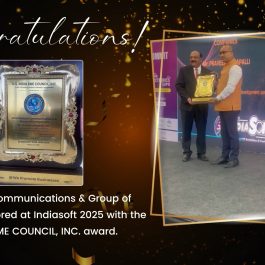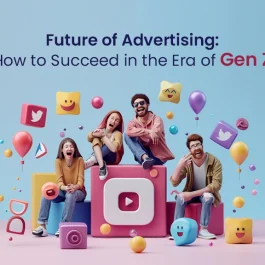4 min read

Keywords have long been the foundation of any effective strategy in the constantly changing world of search engine optimization (SEO). But today’s SEO goes far beyond the fundamentals of using keywords. We will look at how keyword usage is evolving and how important it is to contemporary SEO in this blog.
Table of Contents
The Fundamentals of SEO Keywords
The key phrases and words that online users type into search engines’ keyword fields to find pertinent information are known as keywords. With the help of keywords, search engines like Google, Bing, and Yahoo can match user queries with web pages that contain the most relevant information.
Previously, SEO experts focused on adding keywords to their website’s content, meta descriptions, and backlinks. Although this strategy still has some merit, modern SEO has become more sophisticated and user-centered.
Users’ Intent and Semantic Search
Moving away from a keyword-centric strategy and emphasizing semantic search and user intent is one of the significant changes in modern SEO. Search engines have grown more intelligent in understanding the context of a user’s query. They now consider information like the user’s location, search history, and device type to deliver more pertinent results.
Therefore, SEO specialists need to go beyond just concentrating on exact-match keywords. They must be able to discern the user’s query’s intent and respond with content development that does so. This entails producing in-depth, worthwhile content that still adheres to the user’s needs while not always relying on specific keywords.
Long-Tailed Keywords
Long-tail keywords are more detailed and verbose than generic keywords. Though they frequently receive fewer searches, these keywords tend to draw more relevant traffic. Long-tail keywords are given much attention in modern SEO because they are less competitive and can increase conversion rates.
When incorporating long-tail keywords into your content, offer a comprehensive, worthwhile range that responds to users’ inquiries or addresses their problems. This strategy improves the user experience while also boosting SEO.
Engaging the User Experience
Search engines now consider user experience and engagement metrics when determining rankings. If users have a bad experience on your website, keywords alone will not cut it. No matter how well you have optimized your keywords, poor design, slow loading times, and low-quality content can hurt your SEO.
If you want to achieve success with contemporary SEO, make sure your website is simple to use, loads quickly, and provides mobile users with a seamless experience. To keep visitors on your site longer, engage them with high-quality content, multimedia components, and interactive features.
Speech Recognition and Natural Language
The popularity of voice-activated search engines like Siri, Alexa, and Google Assistant has altered how people conduct online searches. Natural language is the basis for voice search, so inquiries and requests are made in an informal setting. By making adjustments for natural language queries, modern SEO services can respond to this change.
Create content that provides concise, conversational answers to frequent queries to cater to voice search. Consider how your target audience would speak instead of just typing out their questions. Your content will be compatible with how users use voice search technology if you do this.
Depth and High-Quality Content
Modern SEO has made content quality and depth a top priority. Search engines work hard to provide users with the most accurate and comprehensive information. Therefore, put your energy into developing in-depth, thoroughly researched, and authoritative content that speaks to the needs of your target audience.
To improve the user experience, incorporate various media types, including videos, infographics, and interactive components. Your search engine rankings can be boosted, and engagement levels can be raised with high-quality, multimedia-rich content.

Read More: On-Page SEO Checklist: Optimizing Your Content for Search Engines
Mobile optimization and local SEO
Local search engine optimization is now a crucial part of search engine optimization for companies with a local presence. This involves making your website mobile-friendly and optimizing it for location-based keywords to cater to users on the go.
Claiming and enhancing your listing on Google My Business, soliciting reviews and ratings, and giving precise location details are all local SEO tactics. Mobile optimization is crucial for your website to function correctly across various devices and screen sizes.
Observation and Modification
The field of SEO today is constantly evolving. Users’ behaviours change, and search engines regularly update their algorithms. You must continually assess the effectiveness of your SEO efforts, review performance information, and modify your strategy as necessary if you want to remain competitive.
Track your website’s effectiveness, keyword rankings, and engagement with resources such as Google Analytics, Search Console, and SEO platforms. Review your SEO strategy frequently to determine what needs to be fixed.
Future Keyword Trends
There are several concerns we all have as keywords continue to develop.
- Will the importance of keywords decrease?
- Should we place more emphasis on meaning than on specific words or phrases?
- Is keyword research headed toward AI?
Whatever the future holds, digital marketing specialists know that when planning their campaigns, they should consider user intent and behaviour.
Additionally, you must be willing to use relevant keywords that do not precisely match a product or service, even if they are appropriate.
For instance, when it comes to eCommerce and B2B software, many of the people we speak with are hesitant to target simple keywords that are not directly related to their offerings.
That is not a compelling enough excuse to forego receiving the ranking, especially regarding a commercial search.
The best way to approach this is to consider how law firms acquire clients. Almost every law firm that uses search traffic and best practices for digital marketing to generate leads wants to cover every little thing that remotely relates to their expertise.
They establish referral partnerships using those leads. This is typically only found in the legal system but is not required. It is adaptable to all industries.
Semrush, meanwhile, keeps you up to date with current search engine trends.
In Conclusion
Even though they still play a crucial role in contemporary SEO, keywords now play a different role. To be successful in the modern digital environment, SEO experts must go beyond simple keyword optimization. They need to be aware of user intent, concentrate on semantic search, and prioritize user experience, engagement, and content quality. You can improve your website’s visibility and offer value to your audience in an ever-changing online environment by adjusting to these changes and staying current with SEO best practices.
Published: October 24th, 2023








